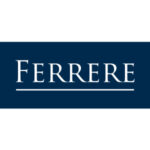

Recently in the region, there have been significant advances in the factors known with the generic expression that groups three non-financial axes of sustainable development of companies: Environmental, Social and Governance (Environmental, Social and Governance or “ESG” for its acronym in Spanish). English).
Why is this topic relevant and what implications does it have and will it have for companies?
The way in which companies are governed or directed directly affects the strategic orientation, the control environment, transparency and accountability to shareholders, investors, collaborators, society, among others, making it more or less attractive and sustainable in the long term. In fact, it is said that the “G” (governance) determines what a company can advance in the “E” and “S” of the ESG perspective.
The professionalization of the Boards of Directors or Boards of Directors of companies is the fundamental piece to trigger the process of strengthening and improving governance and management and, as a natural consequence, the management and sustainability of companies.
Both in Paraguay, Uruguay and Bolivia we found that in general the regulation of some twenty/thirty years ago did not establish anything regarding the professionalization of boards. Commercial activity was free and, therefore, so was the possibility of joining the boards of public limited companies. Certain causes of incompatibilities were foreseen, such as not being able to exercise the direction -in parallel- of two companies with conflicting interests or also certain causes of incapacities, such as the restriction that those persons who could not carry out business or have gone bankrupt, may integrate management bodies (as well as those unable or interdicted etc.).
Years passed without major news, until the central bank authorities of these countries began to issue their respective good corporate governance guides for certain financial entities. Continuing with this evolution and after the passing of the years, these guides were transformed into applicable regulations whose non-compliance becomes sanctioned, expanding its spectrum of application to other obligated companies.
In addition to the above, in recent years companies in the non-financial sector have also begun to design their business plans with an ESG perspective, where the governance factor plays a fundamental role as a pillar that sustains, feeds, and directs environmental and social factors. .
The professionalization of corporate governance is evidenced among others in:
- Integration and functioning of the Board of Directors: with directors who have conditions of probity, suitability and experience, capable of applying an independent judgement.
- Protocol that clearly defines roles and relationships between the governing bodies and their directors with the management and management level.
- Risk analysis and management processes: the preparation of a company risk matrix, with the intention of mapping critical situations, controlling them and therefore adequately managing their risk of occurrence.
- Independence and separation of functions between the various committees and other government bodies (audit, compliance, etc.).
- Appropriate policies for the prevention of conflicts of interest.
- Compensation plans reviewed annually, where shareholders approve the compensation of the directors and these of the other bodies under their responsibility.
These are just some of the aspects to consider. The important thing is not to see them as a check list to be fulfilled, but rather as different elements in which the company’s genuine interest in strengthening its corporate governance is manifested. In this sense, it must be conceived as a process that starts from an awareness of its managers, an analysis of the starting situation and a clear definition of the type of governance that makes the most sense for the type of company and business.
For more information contact to:
Carla Arellano | Counsel Ferrere | carellano@ferrere.com





